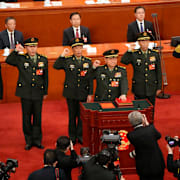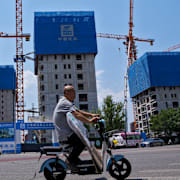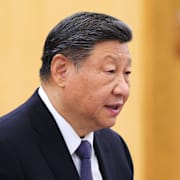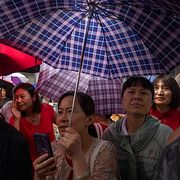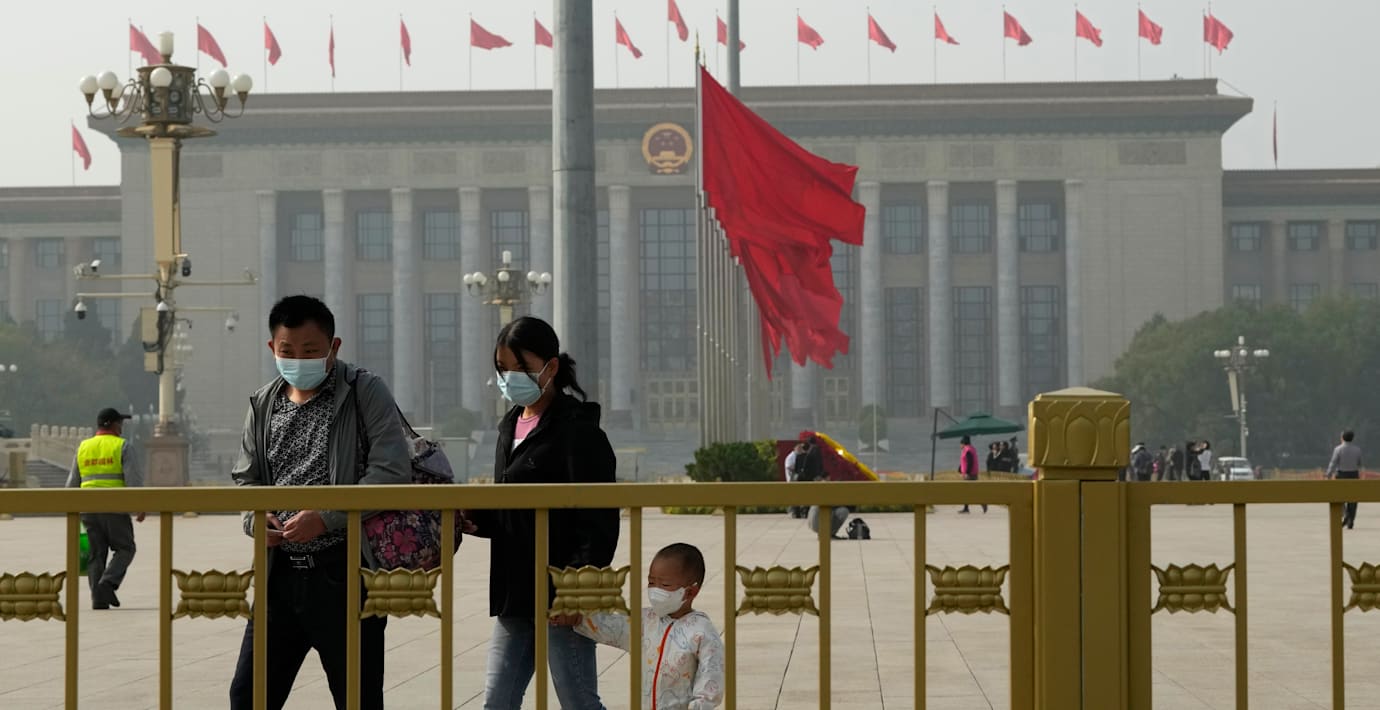
Kina: Har rätt att tvinga till oss Taiwan om det behövs
Kina har rätt att som sista utväg tvinga till sig Taiwan, även om en ”fredlig återförening” är att föredra. Det säger Sun Yeli, talesperson för det kinesiska kommunistpartiet, inför partikongressen som inleds i helgen, enligt Reuters.
Under kongressen väntas president Xi Jinping för tredje gången väljas till generalsekreterare, och därmed få sitta kvar ytterligare fem år vid makten. Kongressen avslutas 22 oktober, och därefter inleds då sannolikt Xis tredje mandatperiod som president. AFP konstaterar att det skulle befästa hans position som ”Kinas mäktigaste ledare sedan Mao Zedong”.
2 296 personer deltar vid kongressen, som hålls för tjugonde året. Taiwans styre ser inte den självstyrande ön som en del av Fastlandskina.
bakgrund
Taiwans självständighetskamp
Wikipedia (en)
The Taiwan independence movement is a political movement which advocates the formal declaration of an independent and sovereign Taiwanese state, as opposed to Chinese unification or the status quo in Cross-Strait relations.
Currently, Taiwan's political status is ambiguous. China currently claims it is a province of the People's Republic of China, whereas the current Tsai Ing-wen administration of Taiwan maintains that Taiwan is already an independent country as the Republic of China (ROC) and thus does not have to push for any sort of formal independence. As such, the ROC consisting of Taiwan and other islands under its control already conducts official diplomatic relations with and is recognized by 13 member states of the United Nations and the Holy See.The use of "independence" for Taiwan can be ambiguous. If some supporters articulate that they agree to the independence of Taiwan, they may either be referring to the notion of formally creating an independent Taiwanese state or to the notion that Taiwan has become synonymous with the current Republic of China and is already independent (as reflected in the concept of One Country on Each Side). Some supporters advocate the exclusion of Kinmen and Matsu, which are controlled by Taiwan but are located off the coast of mainland China.Taiwan independence is supported by the Pan-Green Coalition in Taiwan but opposed by the Pan-Blue Coalition, which seeks to retain the somewhat ambiguous status quo of the Republic of China (Taiwan) under the so-called "1992 Consensus" or gradually reunify with mainland China at some point.The government of the People's Republic of China (PRC) opposes Taiwanese independence since it believes that Taiwan and mainland China comprise two portions of a single country's territory. The PRC's government has formulated a "One-China Policy," whereby foreign countries may only conduct official diplomatic relations with the PRC on the condition that they surrender all official diplomatic relations with and formal recognition of the ROC.
Omni är politiskt obundna och oberoende. Vi strävar efter att ge fler perspektiv på nyheterna. Har du frågor eller synpunkter kring vår rapportering? Kontakta redaktionen
